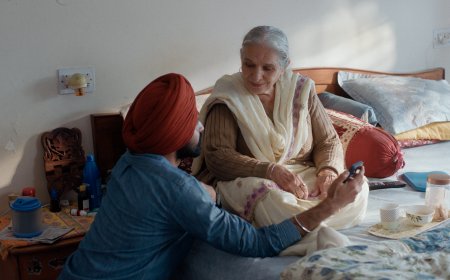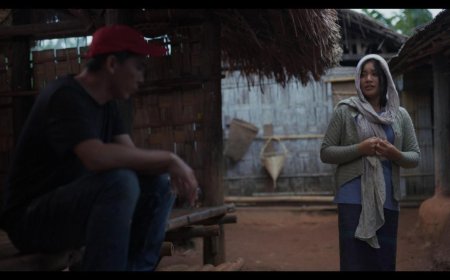Review: Amma’s Pride (2024)

Shiva Krish’s Amma’s Pride is a documentary that captures with precision the transformative potential of everyday love. It approaches a subject often discussed in terms of activism and struggle, but finds within it a deeper, more luminous truth: that change can begin with the smallest gestures within the home. Set in the coastal town of Thoothukudi, the documentary follows Valli and her daughter Srija, whose relationship becomes both the emotional and moral core of this heartfelt tale. Srija, the first transgender woman in Tamil Nadu to legally register her marriage, stands at the intersection of personal fulfilment and social resistance. Yet, the documentary’s dramatic strength lies not in her public victory, but in the courage that made it possible. It is her mother, Valli’s steadfast faith in her daughter’s right to love and to live freely.
Krish’s direction resists the impulse to melodramatise. The camera becomes an active observer that doesn’t intrude or sermonise. It simply observes the characters as they navigate the quandaries of their lives and allows the mundane details to take centre stage. The shared silences between mother and daughter are given priority, accumulating into a quietly profound expression of their bond. With its measured, unflinching attention, this gaze channels the observational rigour of documentary filmmakers like Anand Patwardhan and Kim Longinotto, transforming mere observation into an act of quiet defiance. Through such attention, Amma’s Pride builds an argument for empathy without ever having to make one explicitly.
While Srija’s marriage to Arun Kumar garnered widespread coverage in 2019, Krish focuses less on the media spectacle and more on the personal and social realities that unfolded once the public gaze shifted away. The documentary captures the dissonance between public recognition and private struggle. The legal victory did not guarantee social safety, and the celebration was shadowed by economic precarity and prejudice. The professional setback Arun faced following their union becomes emblematic of how institutions still fail those who choose to live, defying the rigid norms of society. The professional setback Arun faced following their union becomes emblematic of how institutions still fail those who choose to live defying the rigid norms of society. By avoiding any polemic, Krish places these realities within the larger fabric of human vulnerability. Love, he suggests, is not purified by legality or visibility; the pressures of routine hardships test it.
At the documentary’s heart is Valli, a woman whose quiet conviction carries the weight of an unacknowledged struggle. She doesn’t speak in the rhetoric of rights or feminism. Her defiance is instinctive, maternal, and deeply moral. Through her, the filmmaker traces how acceptance can expand into activism, how domesticity itself can become a site of resistance. Her faith, sometimes trembling but never extinguished, embodies the documentary’s central paradox that gentleness can be radical.
As the end credits roll, Amma’s Pride leaves a lingering impression of quiet revolution. It is a documentary that believes in the possibility of change, not through confrontation, but through the persistence of love. In chronicling Valli and Srija’s journey, Krish offers a tender, humane portrait of resilience. One that reminds us that acceptance, when practised fully, can be the most radical act of all.
Amma’s Pride recently won the Best Short Documentary award at the 17th International Documentary and Short Film Festival of Kerala (IDSFFK).
What's Your Reaction?

































































